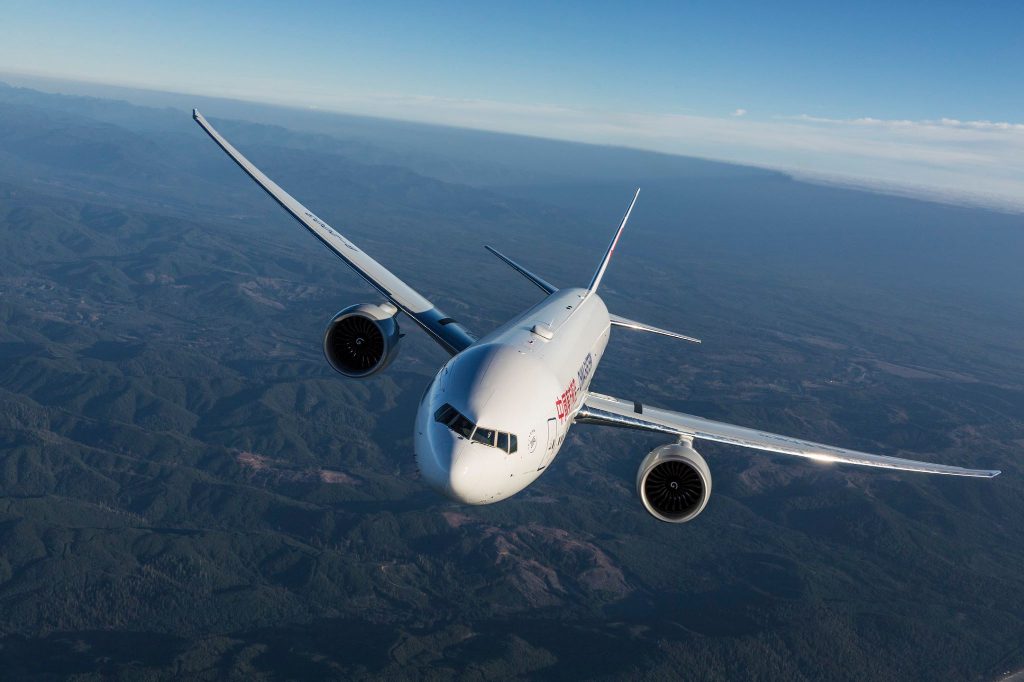Skift Take
New data from China's travel tech giant TravelSky shows that the country's pace of air travel growth slowed in the first half of the year. But the country remained the fastest-growing region in the world in terms of aviation and traveling.
TravelSky has a monopoly on aviation-related software services in China. So the financial data it released Thursday offers a thorough view of air travel trends in the country.
In the first half of the year, both air travel and TravelSky’s revenues continued to grow, despite the Chinese economy seeing its growth drop to its slowest pace in nearly three decades due to a U.S. trade war.
China’s pace of growth in domestic air travel slowed in the first half of this year. Passenger volume only went up 7.8 percent, compared with volume rising 11.4 percent in the first half of 2018. Despite the slowdown, the country remained the fastest-growing region in the world for aviation, according to TravelSky.
International outbound travel remained a bright spot. In the first half of this year, foreign airlines produced 9.6 percent year-on-year growth in passengers traveling internationally on their planes, the company said.
The growth reflected foreign airlines increasing their long-haul routes in and out of the country. But TravelSky also helped to drive the growth by offering rising incentives to travel agencies to direct passengers to these carriers.
TravelSky’s commission and promotion expenses to agencies rose 60 percent in the first half of the year. Executives attributed the jump primarily to their effort to drive bookings on foreign airlines, they said on Thursday during an earnings call.
Overall, both domestic and foreign air travel growth benefited the company. During the first half of the year, the tech vendor boosted its revenue 9.2 percent to $538 million (3.84 billion renminbi), the company said Thursday.
But rising costs, such as marketing and promotion incentives, salaries, and a move to a new data center in Beijing, pressured the company. TravelSky’s profit after taxation grew only 4 percent year-over-year to $199 million (1.422 billion renminbi).
A Contrast With Western Rivals
TravelSky has avoided the struggle that travel tech middlemen like Amadeus, Sabre, and Travelport have had in their attempts to diversify away from core businesses of distributing airline content to travel agencies. Distribution continues to make up the majority of their revenues, though it risks a declining pace of growth.
In contrast, TravelSky is diversified. Thanks to its state monopoly, TravelSky has contracts with all the 235 civil airports in China for tech services, such as to manage security checks.
It also has deals with all of the domestic airlines for services like passenger boarding. Most importantly, it works closely with state-backed airlines Air China, China Eastern, and China Southern Airlines, which hold two-thirds of the nation’s civil aviation market.
In the first half of the year, aviation information technology services such as airport passenger passing and airline inventory control systems accounted for 57.9 percent of the group’s total revenue. Other services, such as fare distribution, billings, and other payment settlement services for domestic airlines, and cloud-based storage services made up the rest.
While China’s state-owned businesses have a reputation for poor use of capital and labor, Beijing-based TravelSky appears from the outside to avoid this stereotype. Its balance sheet looks solid. The company had no short- or long-term debt this year, and it kept a large pile of cash on hand. Compare that to Amadeus, the company’s Madrid-based rival, whose debt equaled approximately 71 percent of the $5.2 billion in revenue it generated in the year ending June 30.
TravelSky continues with modernization projects. The company is moving its systems in phases from data centers to a private cloud for lower operating costs. Once that is successful, it will consider providing cloud-based services to airlines and airports, executives said on an earnings call on Thursday.
The financial period did not include July and August’s political turmoil disrupting Hong Kong airport. Analysts will be watching developments there and their potential impact on China’s travel sector and TravelSky.
The Daily Newsletter
Our daily coverage of the global travel industry. Written by editors and analysts from across Skift’s brands.
Have a confidential tip for Skift? Get in touch
Tags: asia, china, earnings, global distribution systems, travelsky
Photo credit: China Eastern Airlines is one of many domestic Chinese airlines to rely on TravelSky, a tech vendor, for its computing needs. TravelSky reported its first-half 2019 earnings on Thursday. China Eastern Airlines
